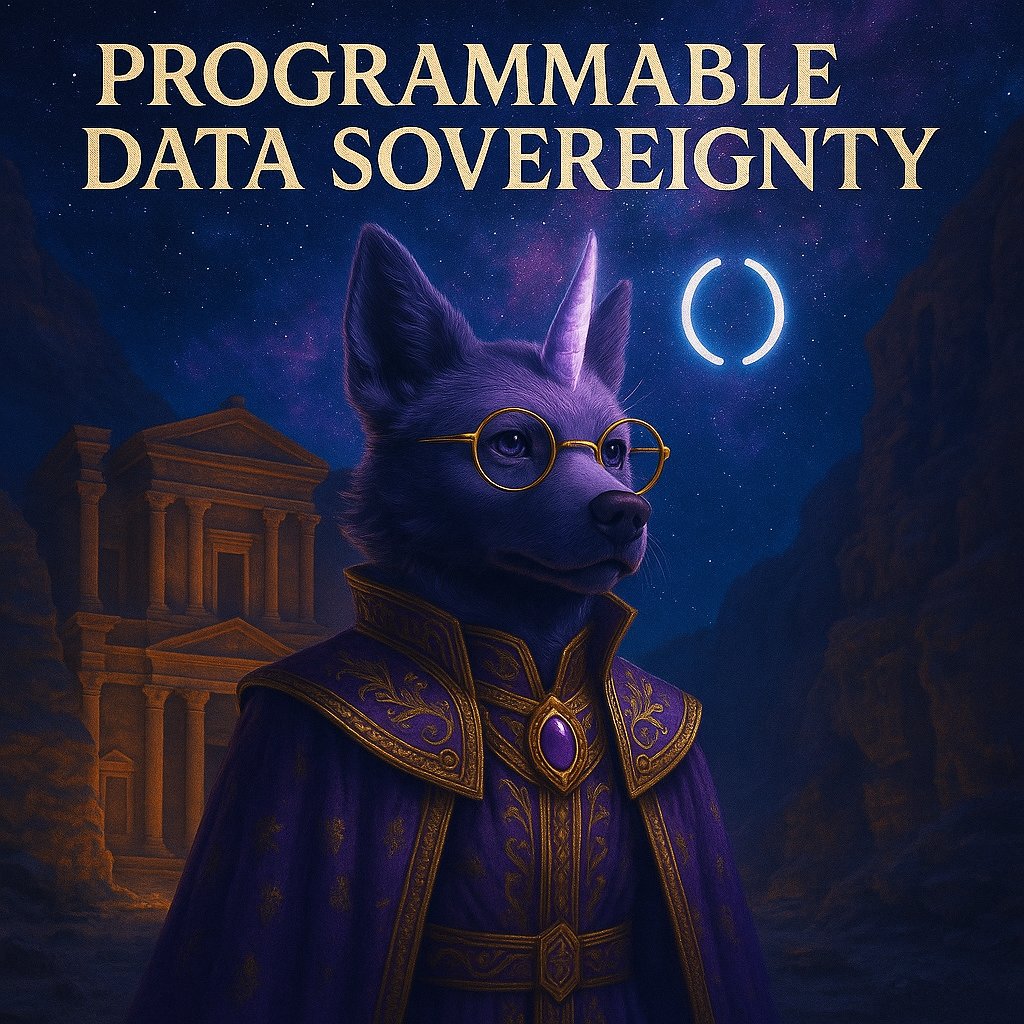[GUEST ACCESS MODE: Data is scrambled or limited to provide examples. Make requests using your API key to unlock full data. Check https://lunarcrush.ai/auth for authentication information.]  Jeycosmos⚛ [@cosmos_atom_](/creator/twitter/cosmos_atom_) on x 1815 followers Created: 2025-07-16 08:38:51 UTC Programmable Data Sovereignty: Privacy with Precision @0xSoulProtocol In Web2, your data is either shared or not usually without your control. In most of Web3, it’s the same: on-chain activity is transparent by default, which is great for auditability but terrible for user privacy. Soul Protocol brings a new model: programmable data sovereignty. Users and developers can define what data is shared, when, and with whom all on-chain, with verifiability and consent built in. Why This Matters Most privacy in crypto is binary: $SO - Tornado Cash-style full anonymity (which invites regulatory scrutiny) - Or full transparency (which breaks privacy entirely) There’s no middle ground. Soul introduces privacy as a programmable primitive. Not just off or on but contextual, selective, and auditable. What Programmable Privacy Looks Like - Users can choose to reveal collateral positions only to specific apps - Protocols can verify data without seeing the underlying asset - Governance actions can be performed anonymously but verified cryptographically This opens new use cases: - Whitelisted access to lending pools without identity exposure - Private vaults with public proof-of-solvency - Encrypted intents that reveal details only upon execution How Soul Enables It Soul’s architecture integrates: - Privacy-preserving computation models - Cross-chain messaging that respects context and disclosure levels - Data permission layers tied to user-defined rules All of it is programmable, composable, and transparent in logic even when the data itself is not. The Bigger Vision Web3 shouldn’t force users to choose between transparency and control. Soul offers both: - Verifiable interactions - Selective data sharing - Infrastructure-level privacy without sacrificing UX This is a critical shift for: - Institutions entering DeFi - Compliant privacy-preserving lending - Complex coordination where selective disclosure matters Programmable data sovereignty is more than a privacy feature. It’s a foundation for scalable, compliant, human-centric DeFi. Soul lets users decide: $SO - What’s visible - What’s hidden - What’s provable and to whom And it does so without compromising decentralization or composability.  XXXXX engagements  **Related Topics** [protocol](/topic/protocol) [onchain](/topic/onchain) [web3](/topic/web3) [coins privacy](/topic/coins-privacy) [Post Link](https://x.com/cosmos_atom_/status/1945402741217747148)
[GUEST ACCESS MODE: Data is scrambled or limited to provide examples. Make requests using your API key to unlock full data. Check https://lunarcrush.ai/auth for authentication information.]
 Jeycosmos⚛ @cosmos_atom_ on x 1815 followers
Created: 2025-07-16 08:38:51 UTC
Jeycosmos⚛ @cosmos_atom_ on x 1815 followers
Created: 2025-07-16 08:38:51 UTC
Programmable Data Sovereignty: Privacy with Precision @0xSoulProtocol
In Web2, your data is either shared or not usually without your control.
In most of Web3, it’s the same: on-chain activity is transparent by default, which is great for auditability but terrible for user privacy.
Soul Protocol brings a new model: programmable data sovereignty.
Users and developers can define what data is shared, when, and with whom all on-chain, with verifiability and consent built in.
Why This Matters
Most privacy in crypto is binary: $SO
- Tornado Cash-style full anonymity (which invites regulatory scrutiny)
- Or full transparency (which breaks privacy entirely)
There’s no middle ground.
Soul introduces privacy as a programmable primitive. Not just off or on but contextual, selective, and auditable.
What Programmable Privacy Looks Like
- Users can choose to reveal collateral positions only to specific apps
- Protocols can verify data without seeing the underlying asset
- Governance actions can be performed anonymously but verified cryptographically
This opens new use cases:
- Whitelisted access to lending pools without identity exposure
- Private vaults with public proof-of-solvency
- Encrypted intents that reveal details only upon execution
How Soul Enables It
Soul’s architecture integrates:
- Privacy-preserving computation models
- Cross-chain messaging that respects context and disclosure levels
- Data permission layers tied to user-defined rules
All of it is programmable, composable, and transparent in logic even when the data itself is not.
The Bigger Vision
Web3 shouldn’t force users to choose between transparency and control.
Soul offers both:
- Verifiable interactions
- Selective data sharing
- Infrastructure-level privacy without sacrificing UX
This is a critical shift for:
- Institutions entering DeFi
- Compliant privacy-preserving lending
- Complex coordination where selective disclosure matters
Programmable data sovereignty is more than a privacy feature.
It’s a foundation for scalable, compliant, human-centric DeFi.
Soul lets users decide: $SO
- What’s visible
- What’s hidden
- What’s provable and to whom
And it does so without compromising decentralization or composability.

XXXXX engagements
Related Topics protocol onchain web3 coins privacy